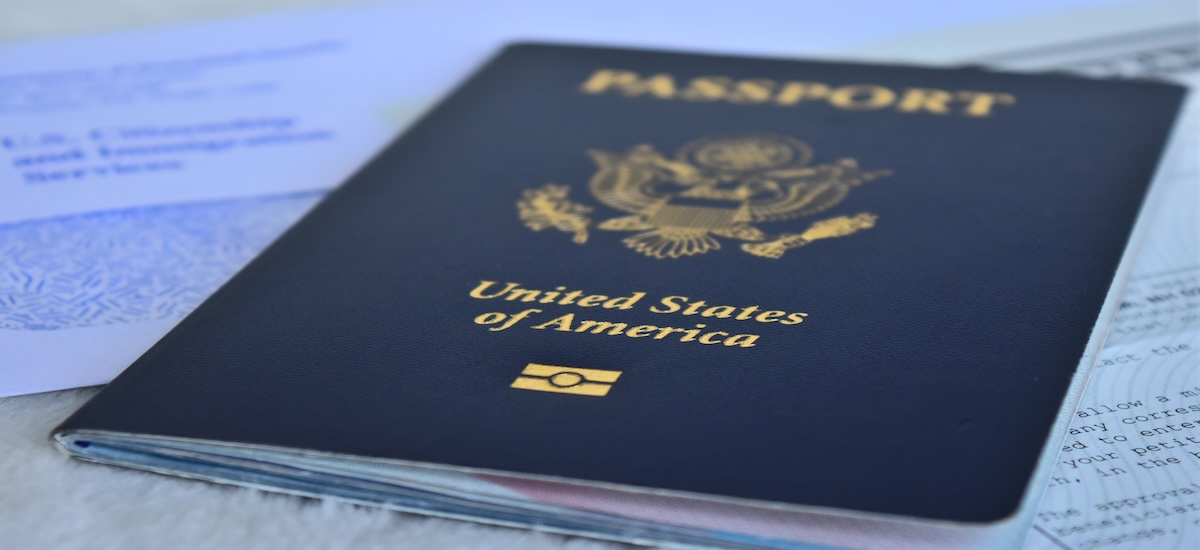How to buy a car in Mexico as a foreigner: US guide
Learn all about buying a car in Mexico as an American, including costs, requirements, and how to import your vehicle back to the US.

Why move to Costa Rica? Tropical beaches, outstanding natural beauty, friendly people and a relatively cheap cost of living make Costa Rica a perennial favorite. Whether you’re planning to study, work or retire, Costa Rica might be a perfect destination for you.
This guide covers all the basics about moving to Costa Rica from the USA. We will tell you about visa options, cost of living, getting accommodation, and every other detail you need to be aware of before relocating to another country.
We'll also introduce Wise — your international money transfer alternative. Use Wise to send stress-free transfers to over 140 countries - all at the standard mid-market exchange rate.
We’ll move on to more detail for Americans moving to Costa Rica in a moment, including things you need to know if you’re moving to Costa Rica with kids, and how to calculate the likely cost of moving to Costa Rica. First, some basics:
| Capital | San José |
| Language | Spanish |
| Population | 5.1 million¹ |
| Currency | Costa Rican Colón (CRC) |
| Government type | Democratic republic |
| Religion | Predominantly Christian, with a minority of people practising other faiths |
| Weather | Hot year round in many areas, milder in higher areas |
| Tax treaty | No |
Yes, moving to Costa Rica from the USA is possible, and many Americans do it.
Costa Rica is especially popular with retirees, thanks to the good healthcare and low cost of living. In fact, there’s a specific visa for people planning to retire in Costa Rica to make the process even easier for expats.
| US citizens don’t need a tourist visa to enter Costa Rica for up to 180 days.² You’ll need to show a return ticket to demonstrate that you intend to leave at or before the end of that period. |
|---|
However, if you're hoping to move to Costa Rica permanently, you'll need to learn more about Costa Rica visa requirements and secure a form of residency in the tropical paradise.
If you don't want to get a visa or residency, you can spend 6 months in Costa Rica and 6 months back in the US.
Costa Rica is generally considered to be one of the safest countries in Latin America, making it a good place for families. Add in the lovely weather and plenty of places to play outdoors, and it can be a great destination to move with kids.
Families will be able to choose from a broad range of public, private, and international schools. Public schools are taught in Spanish. There will be a greater choice of English language classes in private and international institutions.
If you want your child to return to the US education system at a later stage, it’s worth looking for schools with a curriculum and qualifications that will be transferable.
The school year runs from February to November or December, although private and international schools may set slightly different timetables.
It’s also common for public schools to run a shift system with some kids attending in the morning and others in the afternoon. This keeps class sizes small and leaves plenty of time for before or after-school activities.
This is one of the most common Costa Rica FAQs, and the answer is that it’s possible to move to Costa Rica with pets. However, you’ll need to take the advice of a veterinarian who has experience in the relocation of animals to get all the right paperwork in place.
For example, to take a cat or dog to Costa Rica, you’ll need an international pet health certificate from a USDA-accredited veterinarian, issued within 14 days of your pet's flight arrival in Costa Rica.³
There are other requirements, too. Get support from a qualified vet to make sure your journey—and your pet’s—goes smoothly.

If you want to stay in Costa Rica for longer than 180 days, you'll need to secure the right visa or form of residency. Here are a few ways you can become a Costa Rica expat:
This visa is designed for retirees who can prove they have a steady pension or retirement income.
You need to show a monthly income of at least 1,000 USD from sources like Social Security, military pensions, or retirement funds. There's no age requirement, so even younger people with guaranteed income streams can qualify.
Your visa covers your spouse and children under 25 (or older children with disabilities). The permit lasts 2 years and can be renewed if you still meet the income requirements and spend at least 4 months per year in Costa Rica.
You can start your own business with this visa, but you can't work as someone else's employee. You'll also need to contribute about 9 to 10% of your stated income to Costa Rica's social security system.
If you have 150,000 USD to invest, this visa lets you put that money into Costa Rican real estate, shares in a local corporation, or the stock market and get a legal residency status in return.
The real estate option is particularly appealing because you can buy a property in Costa Rica and secure your visa at the same time. Your spouse and dependent children can join you on this visa, too.
Americans moving to Costa Rica who don't have retirement income yet have another option. Rentista visa requires proof of 2,500 USD monthly income from a guaranteed source for at least 2 years.
Most people meet this requirement by depositing 60,000 USD in a Costa Rican bank and getting a letter confirming monthly withdrawals of 2,500 USD.
The visa lasts 2 years and can be renewed if you maintain the income requirement and spend 4 months annually in Costa Rica.
Like the pensionado visa, you can start a business but can't work as an employee. You'll also contribute around 9 to 10% of your income to the social security system.
With Costa Rica's digital nomad visa, you can stay in the country for 1 year, with the option to renew for another year, and work remotely. This option doesn't lead to permanent residency or citizenship, but it can be a nice way to experience everything Costa Rica offers.
To qualify, you need to earn at least 3,000 USD monthly from remote work for clients outside Costa Rica (4,000 USD if you're bringing dependents like your spouse or kids).
Digital nomads get some nice perks, including no income tax on foreign earnings, the ability to open a Costa Rican bank account, and not needing to get a Costa Rican driver's license (your US license will work fine).
You can also skip customs taxes on work equipment like laptops and phones.
3 of these visa types—pensionado, inversionista, and rentista—can lead to permanent residency after 3 years of legal residence. The digital nomad visa doesn't offer this pathway.
Permanent residency also opens doors to eventual citizenship, if you want to go that route.
Overall, Costa Rica is friendly to American expats and welcomes them with open arms. Just secure a proper visa, handle the paperwork, and start enjoying that Pura Vida lifestyle!
The overall cost of living in Costa Rica is low compared to the US. This, plus the relatively high standard of living and good healthcare options, makes it a popular place for those on a fixed income, like retirees and investors.
However, it's still one of the most expensive countries in Latin America. Here's a snapshot of what you can expect from the Costa Rica cost of living:
| Expense | Approximate cost (USD)¹⁰ |
|---|---|
| Meal at an inexpensive restaurant | 10 USD |
| Meal for 2 people at a mid-range restaurant | 60 USD |
| Apartment (1 bedroom) in the city centre | 800 USD |
| Apartment (3 bedrooms) in the city centre | 1,457 USD |
| Basic utilities | 87 USD |
| Internet | 54 USD |
| Phone plan | 26 USD |
| International school (yearly for 1 child) | 10,000 USD |
| Toyota Corolla Sedan (or similar new car) | 35,256 USD |
Overall, for a single person, monthly expenses before rent average 920 USD. For a family of 4, expect to spend 3,355 USD per month before rent.¹⁰
But as with anywhere in the world, you can spend more or less depending on your lifestyle.
Rent will usually be one of the major costs you have to consider, but with a great range of housing options from beachside hideaways to city apartments, you can pick your place according to your budget.
The wealth of natural resources, beaches, and outdoor activities also means it’s easy enough to have fun for free.
If you're moving to Costa Rica from the US with kids, it's important to budget for their education. Costa Rica has a solid public education system, but most expats choose to send their children to private international schools. These private schools can be costly, adding 10,000 USD to your expenses every year per child.
Relocating can be an expensive business, but the price you’ll pay overall will depend on whether you’re intending to arrive in Costa Rica with just what you can fit in your suitcase or ship a household of belongings there.
If you want to ship all your household goods and your car, you’ll need to budget for this. Typically, shipping space is sold by the container, meaning you get either a 20-foot or 40-foot container to pack your goods in.
Costs vary widely based on the provider and specifically where you’re shipping from, but you can get quotations from international removals companies fairly easily to build a picture.
Banks are certainly one option for sending money internationally, as are services like PayPal. But the problem with banks is they can often be slow, expensive and inconvenient. Luckily, there’s a better alternative out there.
You can send money to Costa Rica with Wise for low fees and the mid-market exchange rate. It’s easy and quick to set up a payment online, and you’re guaranteed secure transfers even when sending large sums.
Wise is a money service business (MSB) regulated by 12 international financial authorities and uses sophisticated security features to keep you and your money safe.
Open a Wise account, and you can send, spend and convert between 40+ currencies whenever you need to. You can even receive money from all over the world using your own local account details.
As if all that wasn’t enough, there’s a Wise Multi-Currency Card too. For a one-time fee of just $9, you can spend in over 150 countries in the local currency. Your USD is automatically converted at the mid-market rate for just a small conversion fee.
You’ll need to open a Costa Rican bank account to be able to manage day-to-day costs and set up basic needs like rental payments and utilities.
Do a bit of research to find the right bank and account product for your needs. Good places to start your search include:
- Banco de Costa Rica
- Banco Popular
- Scotiabank
- Davivienda
Depending on the account, you may need to provide a minimum opening deposit amount, and you will have to show supporting documents to prove things like your valid passport, residency permit, and address.
Most staff at Costa Rica banks speak some English, but don't expect them to be fluent.
When it comes to paying your taxes in Costa Rica, you’ll probably want to take professional advice to make sure you stay on the right side of the law, especially when it comes to fulfilling your US tax obligations.
| Costa Rica follows a territorial tax system, which means you'll pay taxes on income earned within the country's borders. |
|---|
All Americans living in Costa Rica must pay taxes on any income they receive from a Costa Rican source, whether they're a resident or a non-resident.
However, you won't be taxed on income from outside Costa Rica, like US Social Security or retirement distributions. You'll still pay other types of taxes, including property taxes, rental income tax, and VAT.
What catches many Americans moving to Costa Rica off guard is that US citizens must pay taxes on their worldwide income, regardless of where they live. Moving to Costa Rica doesn't change your US tax filing requirements. You still have to file with the IRS.
The US and Costa Rica don't have a tax treaty in place.¹¹ However, you can use the Foreign Earned Income Exclusion and the Foreign Tax Credit to reduce your US tax liability.
Housing is a major expense, no matter where in the world you live. In Costa Rica, the overall costs of a place to buy or rent are lower than in many parts of the US, although you’ll need to choose your location carefully based on your budget and personal preferences.
Renting a short-term place in Costa Rica before you decide where to settle longer term can be a good idea. It’ll give you a chance to check out the different types of housing available, as well as explore a few different places.
For both renting and buying a property in Costa Rica, start out searching online for a few ideas and build a realistic budget for the specific location you’re interested in.
| 🎯 Some popular real estate umbrella sites to start out on include: |
|---|
|
Once you have an idea of the specific location and property type you want, you might want to find a local real estate agent in the area you’re targeting. This will often mean you get a wider range of properties and some solid local information to help you pick a perfect place to rent in Costa Rica.
Here's a snapshot of how much you can expect to pay for rent in different parts of Costa Rica:
| City | 1 bedroom (central location) | 3 bedroom (central location) |
|---|---|---|
| San Jose¹² | 871 USD | 1,436 USD |
| Tamarindo¹³ | 1,809 USD | 2,974 USD |
| Jaco Beach¹⁴ | 553 USD | 1,863 USD |
| Heredia¹⁵ | 763 USD | 1,596 USD |
| Guanacaste¹⁶ | 198 USD | 694 USD |
As you can see, you can find all kinds of accommodations in Costa Rica and the costs can vary widely.
You'll pay a premium in popular tourist destinations like Tamarindo, but the Guanacaste province itself is largely affordable. You could find a studio or 1-bedroom apartment for just 198 USD on average.
Having a local bank account will come in handy for paying rent, utilities, and internet.
Make sure to always get a contract in writing. Some landlords, especially in more local neighborhoods with a laid-back lifestyle, may suggest just having a verbal agreement, but getting something in writing protects both of you.
Expats have the same rights as Costa Ricans when it comes to buying a property, which means you can purchase a place outright in your own name.
There's one notable exception, and it's Maritime Zones, which are beachfront areas. These areas are considered to be public land, and foreigners will need to set up a Costa Rican company and seek additional permissions to own this type of property.
Here's how much you can expect to pay when buying property in Costa Rica in a few popular areas:
| City | Buy apartment price (per square meter in a central location) |
|---|---|
| San Jose¹² | 2,908 USD |
| Tamarindo¹³ | 5,381 USD |
| Nosara¹⁷ | 6,346 USD |
As with anywhere in the world, some unscrupulous realtors may prey on foreigners who don’t yet know their way around the local system. You’ll need to read up on the process of buying a house in Costa Rica before you get started, and find yourself some good local support before you hand over any money.
It's also essential to hire a good real estate lawyer to oversee the transaction. They'll verify the property's title and make sure that it's in good legal standing.
Most of all, remember that although Costa Rican property may be cheaper than in the US, if something seems too good to be true, it probably is.
Costa Rica has one of the best healthcare systems in the world, ranking higher than the US.
The country operates a universal healthcare system called CAJA (Caja Costarricense de Seguro Social) that provides 100% coverage for all medical procedures, appointments, hospital visits, and prescription drugs to citizens and residents.
The system is funded through small monthly contributions based on income levels, typically ranging from 7% to 11% of your monthly income.
| If you want to use a private healthcare facility, the costs are still much more affordable compared to the US, with medical visits, tests, and even complex surgeries costing just ¼ to ⅓ of American prices. A doctor's visit runs 60 to 75 USD, and specialist consultations cost around 100 USD. |
|---|
Many expats use a hybrid approach, using both CAJA and private clinics (for shorter wait times or very specialized procedures).
Let’s take a look at popular places to live as a US citizen in Costa Rica.
The Costa Rican capital city, San José, is a great place for people working and studying, and offers good schooling options for families.There’s a strong expat community to help build a network in the country, and a range of housing options in the city, the suburbs, and even smaller surrounding towns.The climate here is relatively temperate, and travel to other parts of the country is a breeze.
On the Pacific Coast, towns like Tamarindo make for a beach vibe with a relaxed atmosphere, but still have lots of amenities to offer.Tamarindo is one of the more expensive areas in Costa Rica for this reason, but you’ll have some of the best beaches in the country on your doorstep, for surfing, fishing, and relaxing.Join in with the tourists when you want to, and still find more peaceful spots when you need a bit of quiet.
In the Southern Zone, you’ll come across fewer tourists, but with rainforests, coastline, and wildlife reserves, it’s a real natural paradise.There are peaceful villages and smaller towns up and down Costa Rica's Pacific Coast here, which offer a slice of perfection at a relatively low cost.Look around Dominical, Ojochal, and the village of Uvita as a starting point.
Life in Costa Rica is generally safe. As with most places, petty crime can be an issue, and tourists and people who are obviously carrying valuables may become targets. If you're wondering, "Is Costa Rica safe for expats?" The answer is that it is, as long as you use common sense.
Don't flash expensive jewelry or electronics, avoid walking alone at night in unfamiliar areas, and be aware of your surroundings in crowded tourist spots.
Costa Rica maintains one of the lowest crime rates in Central America and has no standing army, which contributes to its peaceful reputation. The country is often called the "Switzerland of Central America" for its political stability and neutral stance.
Now that you can stop Googling, "what to know before moving to Costa Rica" and "is Costa Rica safe to live," it's important to remember that Costa Rica delivers on its promises, but it's not a fantasy escape from reality.
You'll find yourself trading some conveniences for a slower pace of life. Getting internet installed might take 3 weeks instead of 3 days, but you'll also discover that a 10 USD lunch tastes better when it comes with ocean views.
Becoming a temporary or permanent resident isn't difficult, and the healthcare system works really well. The cost of living is lower than in the US, but you can easily bump it up if you keep relying on imported items and groceries.
If you need everything to work exactly like it does back home, you might struggle here. But if you're ready to let go of expectations and embrace "pura vida" as more than just a tourist slogan, Costa Rica could be exactly what you're looking for.
| With the Wise account, you can top up your USD with a domestic transfer that you will be able to convert at the mid-market rate with an upfront conversion fee. |
|---|
Sources
*Please see terms of use and product availability for your region or visit Wise fees and pricing for the most up to date pricing and fee information.
This publication is provided for general information purposes and does not constitute legal, tax or other professional advice from Wise Payments Limited or its subsidiaries and its affiliates, and it is not intended as a substitute for obtaining advice from a financial advisor or any other professional.
We make no representations, warranties or guarantees, whether expressed or implied, that the content in the publication is accurate, complete or up to date.

Learn all about buying a car in Mexico as an American, including costs, requirements, and how to import your vehicle back to the US.

Learn all about opening a bank account in Brazil as an American, including costs, requirements, and alternatives.

Learn all about opening a bank account in Japan as an American, including costs, requirements, and alternatives.

Learn all about buying a car in Malaysia as an American, including costs, requirements, and how to import your vehicle back to the US.

Learn all about buying a car in Dubai as an American, including costs, requirements, and how to import your vehicle back to the US.

Learn all about buying a car in Ireland as an American, including costs, requirements, and how to import your vehicle back to the US.